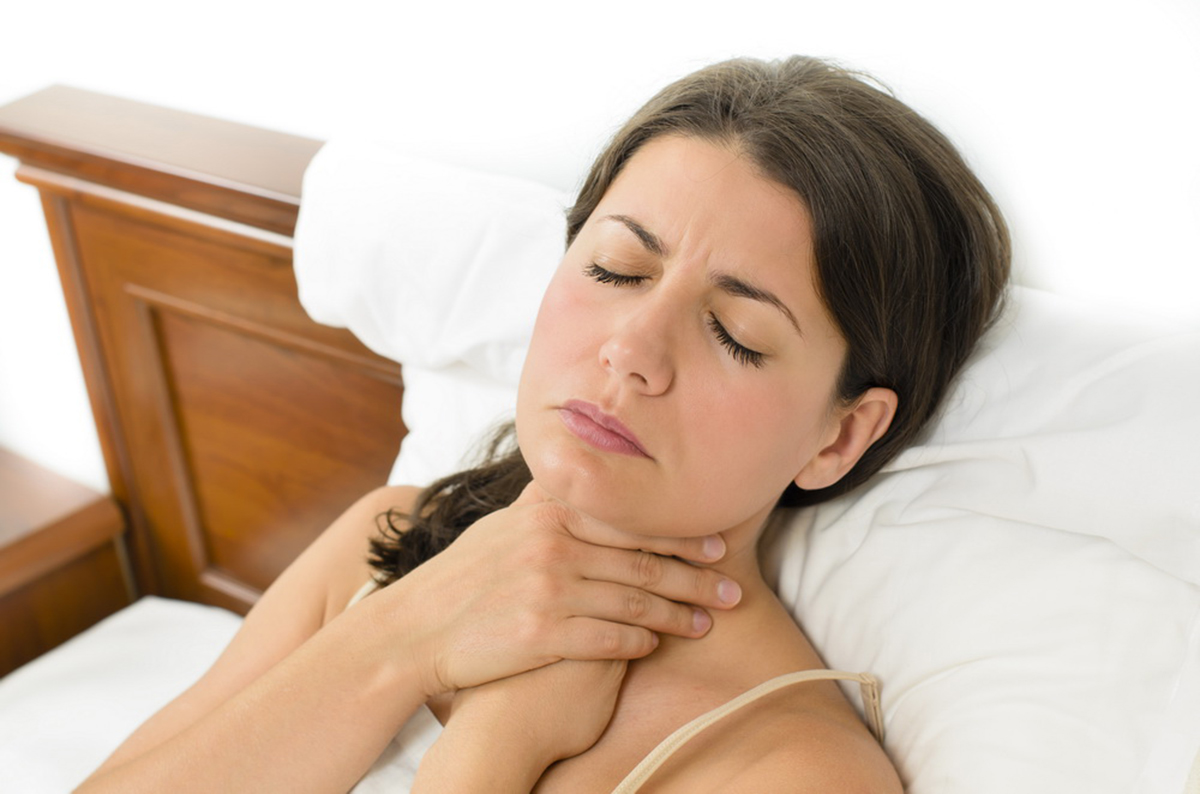The esophagus is a long, muscular tube which helps push food through the throat down into the stomach using a muscular action. Diffuse esophageal spasm is a condition in which contractions occur in the esophagus and do not propel food into the stomach. Esophageal spasms are not uncommon, but it is definitely something which should not be ignored.

What are the two types of esophageal spasms?
There are two main kinds of esophageal spasms and these include the following (which research indicates might be related) [1] :
- Nutcracker esophagus: this type of esophageal spasm squeezes in a coordinated manner, the same way that food is moved down the esophagus normally. However, the squeezing is extremely strong and may cause severe pain.
- Diffuse esophageal spasm: this type of spasm is an irregular squeezing in the muscles of the esophagus. Uncoordinated squeezing prevents food from reaching the stomach and leaves it stuck in the esophagus.
What causes an esophageal spasm?
The precise causes of esophageal spasms are unknown. [2]
In some individuals, very cold or very hot foods might trigger an episode of esophageal spasm.
What are the symptoms of an esophageal spasm?
The signs and symptoms of an esophageal spasm may include any or all of the following [2]:
- Difficulty swallowing
- Squeezing pain in the chest that could be mistaken for heart pain
- Regurgitation of foods and liquids back into the esophagus
- The sensation of having something lodged in your throat
What causes esophageal spasms?
As mentioned above, the precise causes of esophageal spasms are not clear. While a healthy esophagus will normally move food into the stomach through a series of coordinated muscle contractions, the same is not possible with diffuse esophageal spasms. Esophageal spasms disrupt normal esophageal contractions and make it difficult for the muscles in the lower esophagus to move food into the stomach.
What are the risk factors of esophageal spasms?
Esophageal spasms are more common in females than in males. [3] However there are other factors which could increase the risk of esophageal spasms and these include:
- Consuming very hot and cold foods or drinks
- Drinking red wine
- Gastroesophageal reflux disease
- High blood pressure
- Anxiety
- Heartburn
- abuse of opioids
How is esophageal spasm diagnosed?
A medical doctor can often figure out the cause of esophageal spasms from a person’s medical history and by asking a series of questions. These questions can include what types of food or drinks seem to trigger the symptoms, where it feels like the food is getting stuck, other symptoms or conditions a person may have, and whether medications are being taken for the symptoms.
READ Acid GERD (Gastroesophageal Reflux Disease) and Heartburn: Causes, Symptoms and Treatment
Esophageal manometry involves a small tube attached to transducers which measure pressure in the esophagus. A barium swallow is performed by using x-rays. Other testing may be done, such as Esophagogastroduodenoscopy (EGD) to find out whether the chest pain may be the result of gastroesophageal reflux disease, or due to reflux of food or stomach acid into the esophagus.
How Is Esophageal Spasm Treated?
If a person experiences esophageal spasms only once in a while, treatment may not be required. However, a doctor may recommend avoiding certain foods and drinks or the situations which could trigger the condition.

If a person’s esophageal spasms make it difficult to eat or drink, a doctor may recommend the following treatments [2]:
- Managing any underlying medical or health conditions: high blood pressure, heartburn, gastroesophageal reflux disorder, depression or anxiety could be responsible for someone having esophageal spasms. Treating these conditions may alleviate the symptoms of esophageal spasm.
- Medications to relax the swallowing muscles: a doctor may prescribe certain medications which will reduce the severity of esophageal contractions. Nitroglycerin given under the tongue may help a sudden episode of esophageal spasm. Long-acting nitroglycerin and calcium channel blockers are also used for the problem. If a person is dealing with chronic esophageal spasm, a doctor might prescribe low-dose antidepressants to reduce symptoms.
- Surgery: if a person’s esophageal spasms are severe enough and medication and self-management do not improve the condition, surgery may be necessary either dilate the esophagus or to cut the muscle at the lower end of the esophagus to stop the spasms.
What type of lifestyle modifications can help improve esophageal spasms?
A person may want to try the following:
- Stop smoking and do not use smokeless tobacco products
- Do not wear tight clothing around the midsection
- Identify foods or drinks which trigger esophageal spasms
- Choose food that is warm or cold and avoid foods that are very hot or very cold
- Find effective ways of managing and limiting stress
- If gastroesophageal reflux disease is responsible for esophageal spasms, taking a daily acid controlling medication can be very helpful
- Keep head elevated when sleeping
- Avoid alcohol, especially red wine
- Do not eat spicy foods
- It can be better to eat smaller meals throughout the day than two or three bigger ones
- After eating a meal wait a few hours before laying down
- Cut out late-night snacking
What kinds of things should you ask your doctor about esophageal spasms?
There are some things you can do to prepare for an appointment with your doctor. The following is a list of suggestions of things to do prior to visiting your physician:
- Write down any questions or concerns you need to discuss
- Make a list of the symptoms you have going on
- Make note of any triggers you notice that might be causing the spasms
- Have a list of all the vitamins, medicines and supplements you take
- Tell the doctor about any key personal information including any recent changes going on in your life
- Bring along family member or friend to help you recall important things
Prognosis
Esophageal spasms can be very painful and a lot of people lose weight due to its symptoms. With the right diagnosis and medical treatment, many cases of esophageal spasm can be alleviated and resolved. However, if you find no relief from home treatment or prescription medications, your doctor can provide you with other treatment options which can help you manage the symptoms of esophageal spasms and improve your quality of life.
- Photos by shutterstock.com

